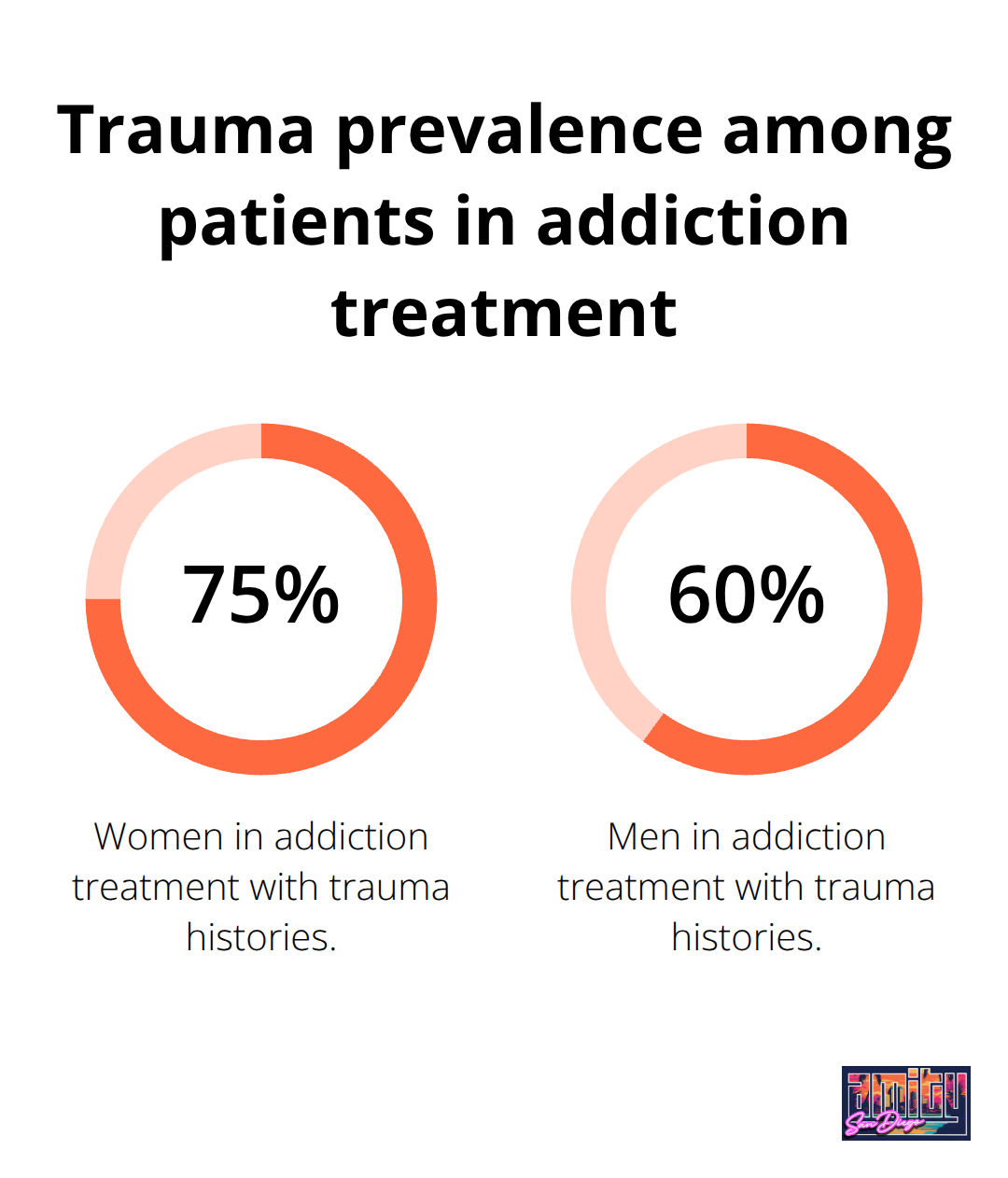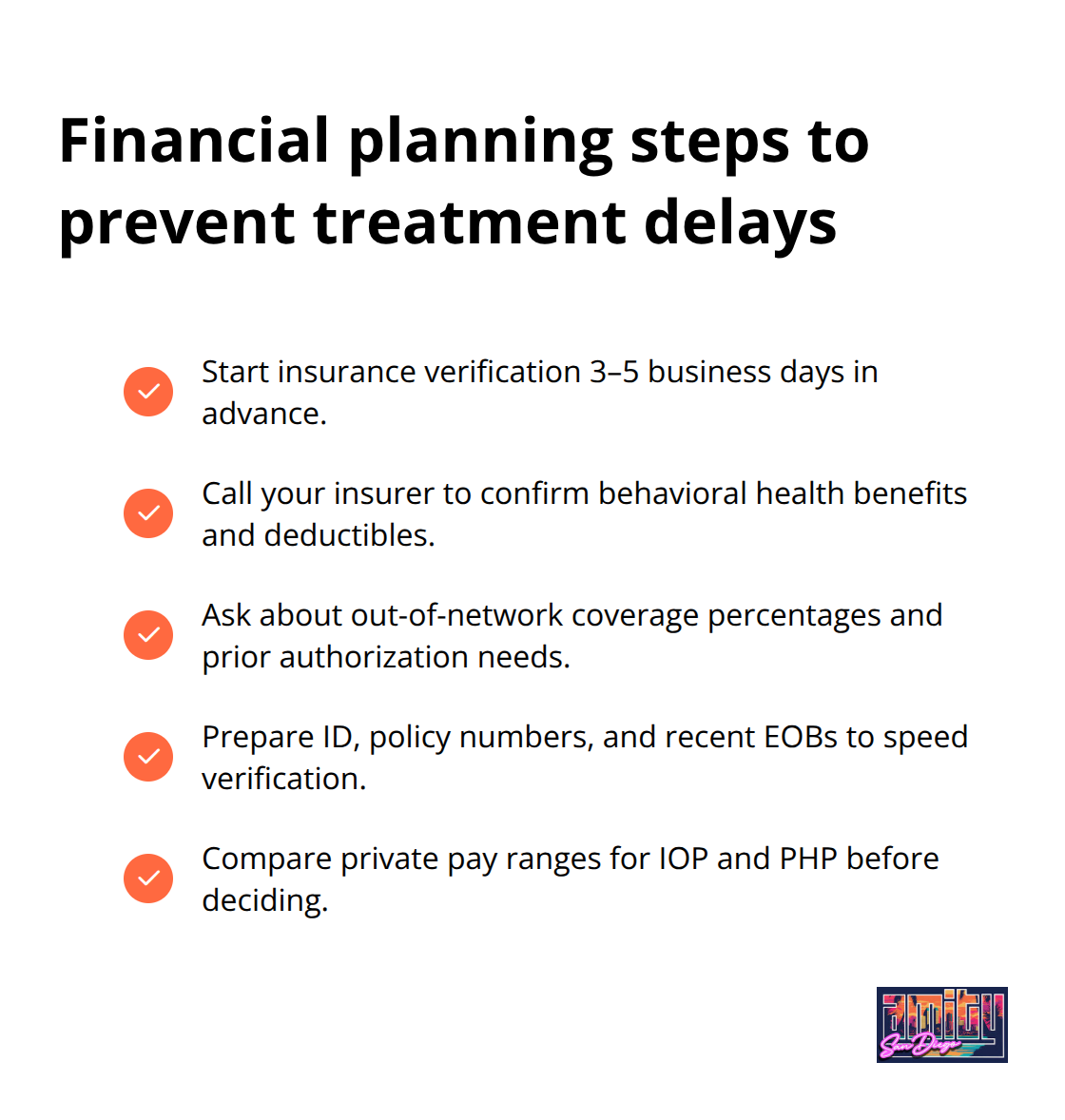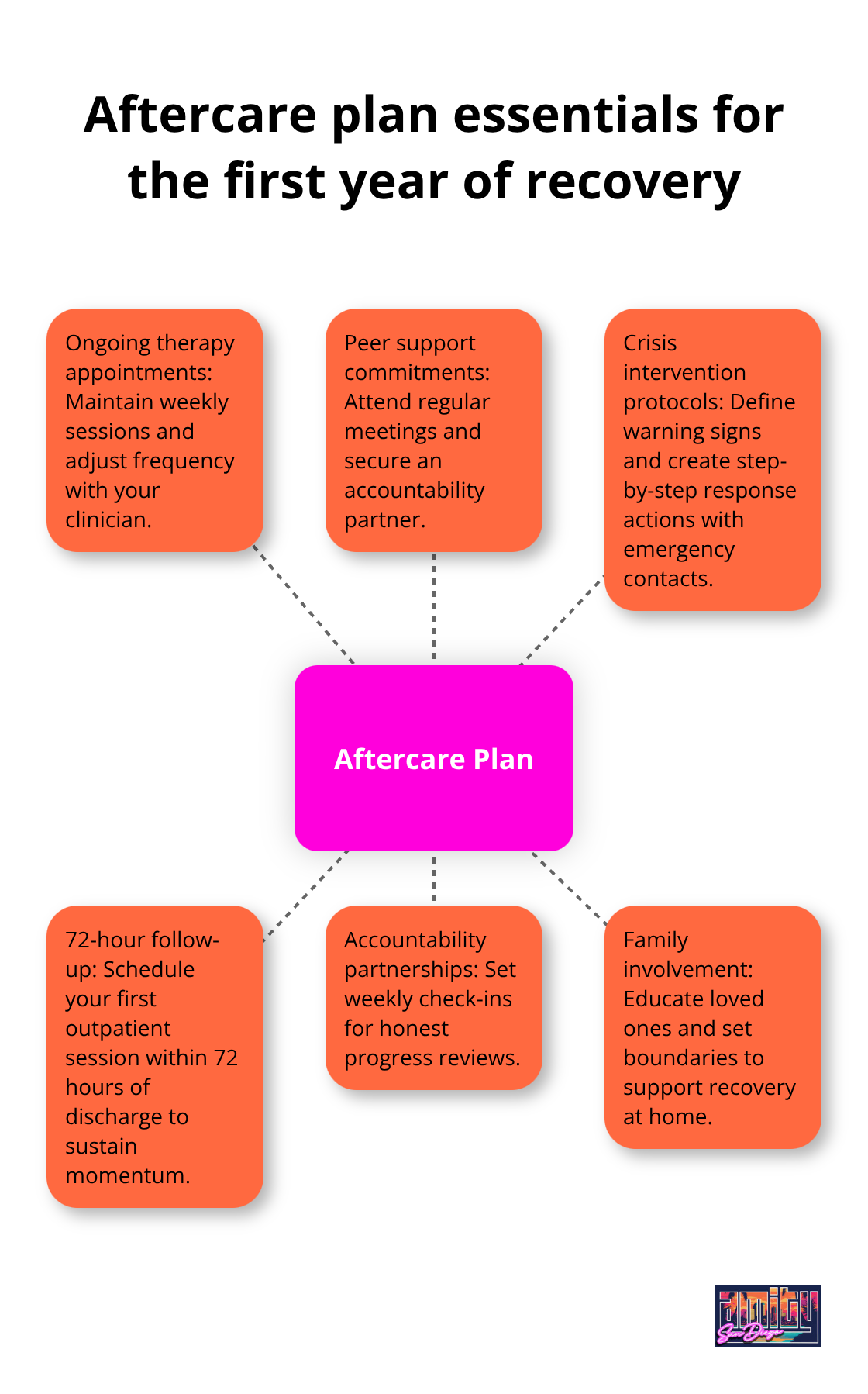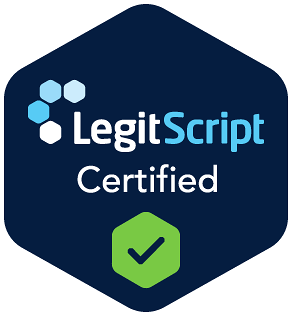Starting your next chapter in addiction treatment requires careful planning and the right support system. The path forward becomes clearer when you understand your options and prepare thoroughly.
We at Amity San Diego have guided thousands through this transformative process. This comprehensive guide will help you navigate treatment choices, prepare for your journey, and build a sustainable recovery plan.
Which Treatment Level Fits Your Recovery Needs
Choosing the right treatment intensity determines your recovery success rate. Research from the National Institute on Drug Abuse shows that relapse rates for substance use disorders range from 40-60%. The decision between outpatient and residential care depends on three factors: addiction severity, medical stability, and home environment safety.
Outpatient Programs Provide Maximum Flexibility
Outpatient treatment works best for people with stable housing, strong support systems, and less severe addictions. Intensive Outpatient Programs require 9-12 hours weekly across three days, while Partial Hospitalization Programs demand 20-30 hours over five days. These programs offer medical supervision without residential requirements. Studies indicate that 70% of patients in structured outpatient care maintain sobriety after one year when combined with ongoing support services.
Residential Care Addresses Complex Cases
Inpatient treatment becomes necessary when patients face severe withdrawal symptoms, unstable living situations, or multiple failed outpatient attempts. Residential programs provide 24-hour medical monitoring and remove environmental triggers completely. The average stay ranges from 30-90 days (depending on insurance coverage and clinical needs). Success rates for residential treatment reach 85% completion when patients stay the full recommended duration.
Dual Diagnosis Treatment Changes Everything
According to SAMHSA’s 2022 National Survey on Drug Use and Health, approximately 21.5 million adults in the United States have co-occurring mental health and substance use disorders. Standard addiction programs fail these patients because they treat symptoms separately. Integrated treatment addresses both conditions simultaneously through licensed clinical teams. This approach combines psychiatric medication management with addiction counseling, showing advantages in improving psychiatric symptoms. Trauma-informed care becomes essential since 75% of women and 60% of men in addiction treatment have trauma histories that fuel substance use patterns.

Once you understand which treatment level matches your needs, the next step involves thorough preparation for your treatment journey.
How Should You Prepare for Treatment
The intake process determines your treatment success from day one. Most facilities conduct assessments that last 2-4 hours and cover medical history, substance use patterns, mental health screening, and family dynamics. Treatment centers use standardized tools like the Addiction Severity Index to measure problem areas across life domains. Your honesty during this phase shapes your entire treatment plan, so withholding information sabotages your recovery before it starts.
Financial Planning Prevents Treatment Delays
Insurance verification takes 3-5 business days, but you can expedite this process when you gather specific documents beforehand. Contact your insurance provider directly and ask about your behavioral health benefits, annual deductible amounts, and out-of-network coverage percentages.

The Mental Health Parity and Addiction Equity Act requires insurers to cover addiction treatment equally with medical conditions, yet many patients still face coverage challenges. Private pay options typically range from $15,000-$30,000 for intensive outpatient programs, while partial hospitalization costs $20,000-$40,000 monthly.
Support Network Assembly Changes Outcomes
You improve your completion rates significantly when you build your support system before treatment starts. Identify three people who will commit to weekly check-ins during your program. These individuals should understand addiction as a medical condition, not a moral failing. Remove enablers from your immediate circle and establish boundaries with family members who minimize your addiction severity. Join online recovery communities like SMART Recovery or LifeRing before you start formal treatment to practice vulnerability and connection skills you’ll need throughout recovery.
Medical Preparation Streamlines Your Start
Schedule a physical exam with your primary care physician within two weeks of treatment entry. Request copies of recent lab work, medication lists, and any specialist reports (especially cardiology or psychiatry records). Many programs require tuberculosis testing and hepatitis screening before admission. Gather prescription bottles for all current medications, including over-the-counter supplements, since some substances can interfere with addiction medications or cause dangerous interactions during withdrawal.
With proper preparation complete, you can focus on developing treatment goals that will guide your entire recovery process.
What Makes Your Recovery Plan Stick
Specific, measurable treatment goals transform abstract recovery hopes into concrete achievements. Patients who establish written recovery goals show improved completion rates compared to those without defined objectives. Your treatment team should help you create SMART goals within your first week: lose 15 pounds in three months, attend 90 meetings in 90 days, or secure stable employment within six months. Vague aspirations like “feel better” or “stay clean” lack the precision that sustained motivation requires. Track progress weekly through apps like Recovery Dharma or Sober Grid, which provide accountability metrics and peer support networks.
Holistic Therapies Accelerate Recovery Beyond Traditional Counseling
Evidence-based holistic practices reduce relapse rates when they address physical, emotional, and spiritual recovery dimensions simultaneously. Yoga therapy shows particularly strong outcomes, with studies demonstrating reduced anxiety and depression among addiction patients who practice regularly. Acupuncture treatments decrease withdrawal symptoms and improve sleep quality within two weeks. Nutritional therapy becomes essential since chronic substance use depletes B vitamins, magnesium, and amino acids that regulate mood and energy. Work with a registered dietitian who specializes in addiction recovery to create meal plans that stabilize blood sugar and support neurotransmitter production.
Art and Music Therapy Process Trauma Without Words
Creative therapies help patients process trauma without verbal communication, particularly effective for those with PTSD histories. Art therapy sessions allow emotional expression through visual mediums when traditional talk therapy feels overwhelming. Music therapy activates different brain regions than standard counseling approaches, often reaching areas where trauma memories reside. These modalities work especially well when combined with traditional cognitive behavioral therapy (creating a comprehensive treatment approach).
Aftercare Plans Prevent First-Year Relapse
Your discharge plan should include three mandatory components: ongoing therapy appointments, peer support group commitments, and crisis intervention protocols. Schedule your first outpatient therapy session before you leave treatment, ideally within 72 hours of program completion.

Drinking patterns in the first year of recovery often include periods of heavy drinking, making consistent aftercare crucial. Identify warning signs specific to your addiction pattern: isolation behaviors, sleep disruptions, or relationship conflicts that preceded past relapses. Create detailed action plans for high-risk situations, including emergency contact numbers and safe transportation options. Establish accountability partnerships with recovery peers who commit to weekly check-ins and honest feedback about concerning behaviors they observe. Family members can play a crucial role in this support system by learning effective strategies to foster a healthier environment for your recovery journey.
Final Thoughts
Your next chapter in addiction treatment starts with one decision to seek help. Statistics show that people who complete structured treatment programs achieve significantly higher success rates than those who attempt recovery alone. This comprehensive approach to treatment positions you for long-term success rather than temporary fixes.
San Diego offers exceptional resources for addiction recovery, with specialized programs that address diverse needs and backgrounds. We at Amity San Diego provide evidence-based outpatient treatment that combines medical expertise with holistic therapies in a supportive coastal environment. Our team includes board-certified physicians, licensed therapists, and wellness specialists who understand that recovery requires personalized attention and clinical excellence.
Professional treatment, peer support, and family involvement create the foundation for lasting recovery. Your willingness to explore treatment options demonstrates strength, not weakness. Contact Amity San Diego today to begin your personalized recovery journey with compassionate professionals who believe in your potential for healing and transformation.



